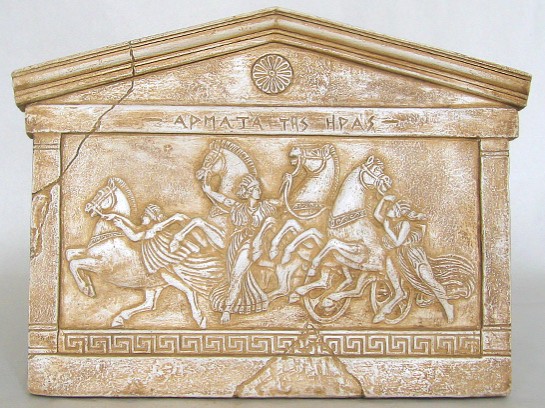In the Olympian pantheon of classical Greek Mythology was the wife and older sister of Zeus.
She also presided as goddess of marriage, the patriarchal bond of her own subordination her resistance to the conquests of Zeus is rendered as Hera's "jealousy", the main theme of literary anecdotes that undercut her ancient cult. Her equivalent in Roman mythology was Juno. The cow and peacock are sacred to her.
Portrayed as majestic and solemn, often enthroned and crowned with the polos, the high cylindrical crown worn by several of the Great Goddesses in her hand Hera may bear the pomegranate, emblem of fertile blood and death and a substitute for the narcotic capsule of the opium poppy (Ruck and Staples 1994). "Nevertheless, there are memories of an earlier, aniconic representation, as a pillar in Argos and as a plank in Samos".
The name of Hera, the queen of the gods, admits a variety of mutually exclusive etymologies one possibility is to connect it with hora, season, and to interpret it as ripe for marriage." So begins the section on Hera in Walter Burkert, Greek Mythology. In a note he records other scholars' arguments "for the meaning Mistress as a feminine to Heros, Master."
Furthermore, A.J. van Windekens, in Glotta 36 (1958) pp 309-11, offers "young cow, heifer", which is consonant with Hera's common epithet boopis, "cow-eyed". E-ra appears in Mycenaean tablets. Thus, unlike some Greek gods, such as Zeus and Poseidon, Hera's name cannot be securely parsed as a Greek or Indo-European word. In aspects of her cult she seems to be a survival of a pre-Greek "great goddess" figure, comparable to the powerful female divinities of the Minoan pantheon, or of some unidentified pre-Greek ("Pelasgian") people.
Product Details
Code: 01534
Dimensions: 22x29cm
Colors: White, Black, Brown
